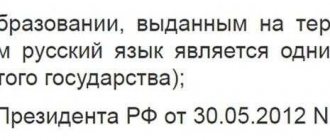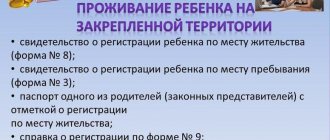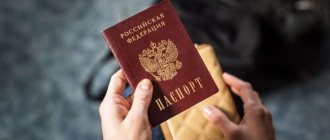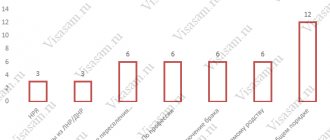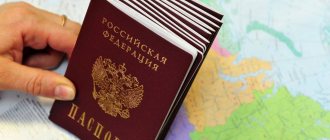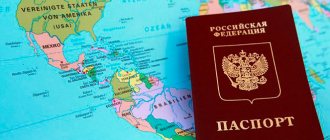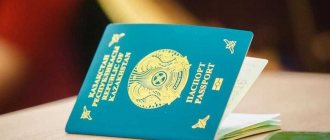Anyone who has dealt with legal issues and regularly worked with documentation knows firsthand about the importance of correctly filling out applications and questionnaires in Russia. Your future success depends on how accurately you complete your application. That is why on numerous legal consulting sites in the Russian Federation, pressing questions are raised every day - what to write in the “citizenship” column in the application form? How can residents of Russia correctly indicate their nationality? What is citizenship in Russia? How to avoid using abbreviations and acronyms?
Thanks to this review you will be able to find out comprehensive information. Correctly filling out the form will be needed in many life situations - obtaining a visa, obtaining citizenship (both Russian and foreign citizenship), joining government agencies of the Russian Federation, and the like. Each of these cases has its own requirements, but in general the principle of filling remains the same.
Rules for filling out the citizenship column in Russia and abroad
For citizens of the Russian Federation, the box for indicating citizenship often becomes a stumbling block, since it must be filled out correctly, and there is no room for error - the next attempt to submit an application may appear only after a year. This is due to a common mistake - many people confuse the term “citizenship” with the term “nationality”, and as you know, confusion is unacceptable in legal matters.
What is citizenship - a stable legal relationship between a citizen and the state, expressed in the presence of mutual rights, duties and responsibilities.
A citizen of the Russian Federation is a person who has a legal connection with the Russian state, performs certain duties to it (paying taxes, serving in the army, etc.) and has certain rights (the right to life, voting, the right to social security).
So, in the “Citizenship” column you must write the name of the state in the nominative case - “Russian Federation”. You cannot write “Russia” or “Russia”.
Some questionnaires allow the possibility of writing “Russia” in the “Citizenship” column, but “Russian Federation” is the official filling option that will satisfy any, even the most strict, questionnaire checker.
When filling out the application form in English, you will be faced with two sections – citizenship and nationality. We've already dealt with the first one. As for the second, this is where you can talk about your roots. The answer should sound like Russian or Ukrainian. But in no case Russia or Ukraine.
Nuances when filling out
Let’s formulate a list of rules - how to fill out the “Citizenship” column in documents:
- Write the full answer in the field: “Russian Federation”. It is better to refrain from abbreviations, as well as from options like “Russian” or “Russian”.
- If you have another passport besides the Russian one (another citizenship), then you need to write about this in free form under the primary citizenship field, indicate the reason (change of place of residence, ownership of real estate, relatives) and add the details of the second passport.
- Please fill out everything in neat, legible handwriting. If you write unclearly, use block letters.
- If you decide to write “Citizen of the Russian Federation” in the citizenship field, then remember - always write in the masculine gender, regardless of your gender. You cannot fill in the field with the words: “Citizen of the Russian Federation”! Citizen is not a position like teacher/teacher or secretary/secretary. This is your status, and it has only one correct spelling.
Grounds for acquiring citizenship under a simplified procedure
Citizens of other countries and stateless persons can submit an application to acquire Russian citizenship in a simplified manner. But it is worth considering that they have the right to do this if there is one of the grounds given in Art. 14 FZ-62.
An important feature of the simplified scheme is the rapid consideration of applications. If in the general procedure the period is 1 year, then in the accelerated procedure it is 3 months.
According to the new simplified procedure for obtaining Russian citizenship, the following categories of applicants no longer need to comply with the requirement of a 5-year period of residence in Russia from the date of issuance of a residence permit, renounce their existing citizenship and confirm a legal source of income:
- Born on the territory of the RSFSR and having citizenship of the former USSR.
- Married for at least 3 years to a citizen of the Russian Federation living in the territory of the Russian Federation.
- Parents of capable adult children with Russian citizenship.
- Having a child from a citizen of the Russian Federation. But in this case there are some nuances. A parent who is a citizen of the Russian Federation must be deprived of parental rights, be deceased, incompetent or missing. If the parent is healthy and is not officially married, then there are no grounds for acquiring Russian citizenship under this scheme.
- Having parents or one parent with the status of a citizen of the Russian Federation. There are also requirements for parents: according to the law, they are required to have permanent registration within Russia.
- Persons with professional education and work experience of at least 1 year. But in this situation, several aspects need to be taken into account: vocational education was received on the territory of the Russian Federation after July 1, 2002, the university must have state accreditation, and during the period of employment, insurance contributions were deducted to the Pension Fund of the Russian Federation.
- Having the status of an individual entrepreneur who has been operating for at least three years. But in this case there is also a nuance. If the annual profit of an entrepreneur is less than 10 million rubles, then he does not have the right to apply for Russian citizenship.
- Possessing investor status. But investors have their own requirements: the amount of authorized capital cannot be less than 100 million rubles, and annual tax deductions cannot be less than 6 million rubles.
- For native speakers of Russian (NRN).
- Participants of the State Program for the Resettlement of Compatriots.
According to Federal Law No. 134, stateless adults who previously had USSR citizenship and are permanently residing in the territory of the former Soviet republics, but have not obtained another citizenship, are also entitled to apply for Russian citizenship. Moreover, for this category of applicants it is not necessary to confirm a legal source of income for living in Russia.
Federal Law-134 identified two more categories of foreign citizens and stateless persons who have the right to apply for admission to Russian citizenship in a simplified manner:
- Those who have common children married to citizens of the Russian Federation living in the territory of the Russian Federation, if they have a temporary residence permit or residence permit.
- Are citizens of the Republic of Moldova, the Republic of Belarus, the Republic of Kazakhstan and Ukraine.
The application form for obtaining Russian citizenship in a simplified manner can be downloaded here.
A stateless person or stateless person can apply for Russian citizenship under this scheme both within the Russian Federation and abroad. That is, he has the right to submit documents even at the diplomatic mission of the Russian Federation, which is located in any country in the world.
Soviet stateless person's certificate
Video: forgiven procedure for obtaining Russian citizenship
Find out from the video:
- who applies for obtaining Russian citizenship in a simplified manner.
Innovations 2020-2021
To acquire Russian citizenship, you first need to obtain a residence permit in this country. But the law says that even without a residence permit you can apply for a Russian citizen passport.
This “privilege” is available:
- foreign citizens born in the RSFSR and who previously had USSR citizenship;
- minor foreign citizens who have parents with a residence permit;
- foreign citizens under 18 years of age who receive a residence permit together with parents (adoptive parents, guardians, trustees) with foreign citizenship;
- foreign citizens with parents (adoptive parents, guardians, trustees) or children with Russian citizenship permanently residing in the Russian Federation;
- adult foreign citizens recognized as incompetent or limited in legal capacity, receiving a residence permit together with parents (adoptive parents, guardians, trustees) with foreign citizenship;
- foreign citizens who have reached 18 years of age, who are recognized as incompetent or limited in legal capacity and whose parents (adoptive parents, guardians, trustees) are foreign citizens with a residence permit;
- foreign citizens who themselves or their relative in a direct ascending line, spouse, or adoptive parent were subjected to illegal deportation from the Crimean Autonomous Soviet Socialist Republic, a relative in a direct descending line, spouse or adopted children of these foreign citizens if they have a certificate of rehabilitation;
- highly qualified employees (HQS) and members of their families;
- persons living in the Russian Federation whose Russian citizenship has been terminated;
- persons in respect of whom the decision to acquire Russian citizenship was cancelled;
- citizens of the Republic of Belarus;
- native speakers of Russian (NRY);
- participants of the State program for the resettlement of compatriots in the Russian Federation;
- foreign citizens with a document of higher education and qualifications with honors. Education must be obtained full-time at an educational institution of the Russian Federation with state accreditation;
- persons specified in Part 1, Part 3 of Art. 41.1 of Federal Law No. 62-FZ of May 31, 2002 “On Citizenship of the Russian Federation”.
What privileges did the new Federal Law 134-FZ provide for each category of foreign citizens and stateless persons?
For stateless persons (LSP):
- the condition on the need to reside on the territory of the Russian Federation for a 5-year period from the date of issuance of the residence permit is canceled;
- You no longer need to confirm a legal source of funds for living in the Russian Federation when applying for Russian citizenship.
The above category includes those persons who have reached the age of majority, are legally capable, previously had citizenship of the former USSR, have lived and are living in states that were part of the USSR, but have not received citizenship of these states.
For foreign citizens and stateless persons (LSP) married to citizens of the Russian Federation:
- you no longer need to confirm a legal source of funds for living in the Russian Federation when applying for Russian citizenship;
- a requirement is introduced that a spouse who is a citizen of the Russian Federation must reside on the territory of the Russian Federation.
For foreign citizens and stateless persons (LSP) who have a capable son or daughter, who have reached the age of majority and are citizens of the Russian Federation:
- the requirement that such persons have a disability is cancelled;
- There is no requirement to confirm a legal source of funds for living in the Russian Federation when applying for Russian citizenship.
For foreign citizens and stateless persons who, after July 1, 2002, received professional education in state-accredited educational programs in Russian educational organizations located on the territory of the Russian Federation:
- the period for carrying out labor activity in the Russian Federation after graduating from an educational organization until the day of applying for admission to Russian citizenship has been reduced from 3 years to 1 year;
- There is no requirement to confirm a legal source of funds for living in the Russian Federation when applying for Russian citizenship.
For foreign citizens and stateless persons who have at least one parent who is a citizen of the Russian Federation and resides on the territory of the Russian Federation:
- There is no requirement to confirm a legal source of funds for living in the Russian Federation when applying for Russian citizenship.
Important: if previously such persons could apply for admission to Russian citizenship at the Russian Federation Consular Office located outside the Russian Federation, now they can do this ONLY on the territory of the Russian Federation.
A new category of foreign citizens who have the right to apply for Russian citizenship
A new category of foreign citizens is being introduced who have the right to apply for Russian citizenship in a simplified manner. These are foreign citizens and stateless persons (LSPs) who are married to citizens of the Russian Federation and have common children in such marriages:
- such persons have the right to apply for admission to Russian citizenship both in the presence of a temporary residence permit and in the presence of a residence permit, however, for this category there is no requirement to live in a marriage with a citizen of the Russian Federation for a 3-year period;
- there is no need to confirm a legal source of funds for living in the Russian Federation when applying for Russian citizenship;
- but for this category there is a requirement that the spouse, who is a citizen of the Russian Federation, must reside on the territory of the Russian Federation.
Citizens of the Republic of Belarus , the Republic of Kazakhstan, the Republic of Moldova and Ukraine are also added to the new category of foreign citizens who have the right to apply for Russian citizenship in a simplified manner
- there is no requirement to reside on the territory of the Russian Federation for a period of 5 years from the date of issuance of the residence permit;
- There is no need to confirm a legal source of funds for living in the Russian Federation when applying for Russian citizenship.
Features of design in a foreign language
The term “citizenship” in English in the application form means the word Citizenship. Those who, for example, apply for citizenship of this country or are employed by an international company will have to fill out a form in a foreign language. In any case, it is necessary to correctly convey information about yourself, while remembering the difference between the concepts of citizenship and nationality that we have already described.
In the case of nationality, or belonging to an ethnic group, in an English-language document we write Russian, which means “Russian”. According to the rules for filling out questionnaires in a foreign language, it is prohibited to use the combination of letters RF. Any other abbreviations, paraphrases, or variations of Russia or Russian to indicate your nationality are unacceptable.
How can residents of Russia distinguish citizenship from nationality when filling out
Let's return to the confusion of the terms “citizenship” and “nationality”. Most often, this problem occurs when filling out forms in a foreign language, since in some countries nationality is no different from citizenship. For example, in French both of these concepts have the same name, so confusion cannot be avoided. If you still had to fill out the “nationality” column, you need to enter the word “Russian”. It is Russian, and not Russian, that is very important. If political scientists are to be believed, a new type of passport may soon appear in which nationality will not be indicated. But at the moment such a column exists, and it must be taken into account.
The definition of both concepts is as follows:
- citizenship implies the country of which a particular citizen is a representative;
- nationality is belonging to some ethnic group (Russian, Jew, Moldavian).
One thing you can be 100% sure of - if you see the “Citizenship” column in the application form, you must enter the words “Russian Federation”, but in no case “Russian”.
In standard forms, stress is not recorded, so this issue does not require detailed consideration. If you have recently arrived in Russia and are trying to pronounce such a significant word correctly, you just need to remember that in the word “citizenship” the emphasis is on the second syllable.
In any case, if we are talking about a country that uses the same term to refer to citizenship and nationality, be sure that it is your citizenship and not your ethnic origin that is being referred to.
Legislative framework in force in 2021: laws, decrees, amendments
The procedure for obtaining citizenship in a simplified manner is regulated by Federal Law No. 62. Article 14 of this Law describes a simplified procedure for obtaining citizenship, as well as the reasons for acquiring citizenship under this scheme.
Latest changes in migration legislation
- On March 18, 2021, Federal Law No. 58 came into force, canceling the requirement to undergo an interview by a special commission when confirming the status of a native speaker of the Russian language (NRL) for citizens of the Republic of Belarus and Ukraine who are fluent in Russian.
- On April 17, 2021, Federal Law No. 134 was adopted by the State Duma and approved by the Council of Federation on amendments to Federal Law No. 62, which significantly simplifies the procedure for obtaining citizenship: https://publication.pravo.gov.ru/Document/View/0001202004240038?index=0&rangeSize= 1. All categories of applicants, without exception, are no longer required to renounce their previous citizenship and confirm their source of income. The amendments entered into force on July 24, 2020.
- On March 29, 2021, amendments to the citizenship law came into force. You can view it here. Now the President has the right to determine the categories of foreigners who have the right to obtain Russian citizenship under a simplified procedure.
- On April 24, 2021, Russian President Vladimir Putin signed a decree on the possibility of granting them citizenship through a simplified procedure: https://kremlin.ru/acts/news/60358. The amendments directly affected residents of the LPR and DPR. .
- On May 1, 2021, the President of the Russian Federation signed a new Decree, which allows a wider range of applicants from Ukraine to apply for citizenship under a simplified scheme. Now Ukrainians can submit an application and documents to obtain a Russian passport at their place of residence, and not registration, as was the case before.
- On July 17, 2021, Decree of the President of the Russian Federation No. 343 was issued, clarifying the list of documents required for obtaining Russian citizenship by residents of the LPR and DPR according to a simplified scheme: https://publication.pravo.gov.ru/Document/View/0001201907170036. You can view the version of the document on our website.
- From September 1, 2021, amendments made to Federal Law No. 115 “On the Legal Status of Foreign Citizens in the Russian Federation” are in effect. Now renouncing Ukrainian citizenship is faster and easier. You can view the changes here.
- On August 2, 2021, the President of the Russian Federation adopted Federal Law-257; the full text of the law can be found on the official website of the Government: https://www.kremlin.ru/acts/bank/44554. Now citizens of Ukraine and stateless persons permanently residing in the territory of this country, recognized as refugees or granted temporary asylum in the territory of the Russian Federation, can apply for a temporary residence permit without taking into account the quota. You can view the editorial by following the link.
For advice and assistance in preparing documents for obtaining Russian citizenship, you can contact the Migron.ru Legal Agency. Phone: +.
What to indicate in the application form if citizenship has been changed
The following situation can cause no less difficulties. If there was a change of citizenship, information about this must also be indicated.
The following must be described:
- date of change of citizenship,
- Which country was the person previously a citizen of?
- citizenship of which country is currently acquired,
- reason for change.
If the citizenship was changed, then it should be written as follows: “In 2008, the citizenship of Ukraine was changed to the citizenship of the Russian Federation.” If you need to indicate the reason, you can write “In connection with moving to permanent residence in the Russian Federation.”
New law on simplified acquisition of Russian citizenship in 2021
On April 17, 2021, Federal Law No. 134 was adopted by the State Duma and approved by the Council of Federation on amendments to Federal Law No. 62, which significantly simplifies the procedure for obtaining Russian citizenship. You can read it on the official website https://publication.pravo.gov.ru
All foreign citizens, without exception, are no longer required to renounce their existing citizenship and, for some, to confirm a legal source of income. The amendments came into force on July 24, 2020.
The procedure for obtaining citizenship under a simplified scheme in 2021 is in accordance with the above changes.
For those born in the USSR
If you were registered back in the years of the USSR in the country where you now live, then you need to adhere to an important requirement: in the “Citizenship” column you must indicate the USSR (USSR).
These norms are enshrined by the Federal Migration Service of the Russian Federation. It does not matter whether a person submits information documents through the Control Center or using the Internet portal of public services.
Exceptions to the rules:
- For France, you must indicate the current name of the country.
- Czech Republic (in the “Country of Birth” section we write RUS, for the “Citizenship at Birth” section – “SUN”).
- Sweden (“Country of birth” – USSR or Russia, depending on what designation is given in the passport).
- When filling out a Schengen application online, you will not find the USSR in the list of states. In this case, the choice is made in favor of the state where the person currently lives.
Five-year residence permit
Here, in general, everything is simple. Are there reasons for a simplified design? This means you receive a residence permit and can apply for Russian citizenship whenever you want. There is no need to wait any longer before submitting.
There are no grounds for simplification and will you file according to the general scheme on the basis of Article 13 of Federal Law No. 62? Then, after you receive a residence permit, you will have to wait 5 years . Only after this period will it be possible to apply for citizenship.
In addition to a five-year residence permit, when applying in general, you must fulfill one more condition for acquiring Russian citizenship - not leaving the country for more than 3 months a year (all five years before applying).
Having two or more passports
What to do and what to write if a person has two citizenships? In this case, dual citizenship is entered into the application form if there is a special column for this. You will also need to provide your passport information.
Today Russia has concluded an agreement on dual citizenship only with Turkmenistan and Tajikistan. There was a similar project with Ukraine, but it was not brought to its logical conclusion. Russians cannot obtain dual citizenship with any other country in the world, so you are unlikely to derive any benefit from it.
By the way, which syllable should be emphasized in the word “citizenship”? In standard forms, stress is not recorded, so this issue does not require detailed consideration. If you have recently arrived in Russia and are trying to pronounce words correctly in Russian, you need to remember that in the word “citizenship” the stress is placed on the second syllable.
What to do if a mistake is made
If you tried to fill out everything correctly, but ended up providing incorrect information in one item or another, then we suggest you study the stages of your further actions:
- Stop being nervous, panicking and pull yourself together.
- Find an employee at the embassy who speaks Russian well enough.
- Don't be afraid to ask for help from the person who works with you.
- Tell him about your problem with writing the questionnaire.
- The employee will give you a new copy in Russian, or you will receive a form in English, but with an explanation of what exactly needs to be entered in this or that item.
Important! Almost every visa center has specially trained personnel who provide services for filling out the visa questionnaire for the applicant, which completely eliminates the possibility of error.
However, this service is an additional option and its cost ranges from 400 to 900 rubles for each applicant, depending on which country the VC belongs to. If you don’t want to spend extra money, the employee will always be able to tell you what to write in the citizenship column.
Helpful information
Please note that it is important to know not only how citizenship is written correctly in the application form, but also how this document is filled out in general. There are several rules that must be followed in order not to spoil the form:
- The typeface must be in block letters only. If you do not want any misunderstandings, write all information in legible block letters of the Russian alphabet.
- Eliminate abbreviations and abbreviations. They will be a serious mistake and your document will simply not be accepted.
- If you are the happy owner of a second citizenship in another state, you should definitely report this.
- The same applies to situations where you previously had a different nationality. In the application form, you will be expected to clearly explain when and for what reason you refused it.
For residents of post-Soviet countries
If the applicant is a citizen of post-Soviet countries, then the general rules are the same: in the “citizenship” column the name of the country is written without abbreviations and abbreviations, in the “nationality” column the ethnicity is indicated.
Here are answers to some of the most common questions.
How to write the citizenship of Kazakhstan: enter the full name of the state in the appropriate column - “Republic of Kazakhstan”. You cannot simply write “Kazakhstan” or “RK” - this will be considered a mistake.
If you doubt whether citizenship is spelled correctly: “Ukrainian” or “Ukrainian,” then keep in mind that both options are incorrect. In the corresponding paragraph the name of the state is written - Ukraine. “Ukrainian” is the name of a nationality.
The same rule should be used if you need to write Belarusian citizenship in the application form: indicate the full name of the country - the Republic of Belarus.
